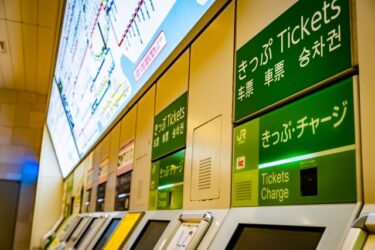This FAQ page is designed to address the most common questions and concerns that foreign residents typically have. Whether you’re trying to figure out how to set up a bank account, navigate public transportation, or understand the healthcare system, this guide will help you feel more at ease in your new home.
- 1 Common Questions from Foreign Residents and Answers
- 1.1 1. How do I open a bank account in Japan?
- 1.2 2. How does the healthcare system work, and do I need insurance?
- 1.3 3. How do I find a doctor or dentist who speaks English?
- 1.4 4. How can I get a mobile phone in Japan?
- 1.5 5. What’s the process for renting an apartment in Japan?
- 1.6 6. How do I navigate public transportation?
- 1.7 7. What should I know about Japanese culture and etiquette?
- 1.8 8. How do I enroll my child in a Japanese school or international school?
- 1.9 9. What’s the best way to learn Japanese as a foreigner?
- 2 Helpful URLs for Common Expat Needs in Japan
Common Questions from Foreign Residents and Answers
1. How do I open a bank account in Japan?
Opening a bank account in Japan is relatively straightforward, though it does require certain documents. Most banks will require:
- A Resident Card (Zairyuu Card) with your address in Japan
- Your passport
- A hanko (personal seal) – though some banks allow a signature
- A phone number (you may need a local Japanese number)
Many large banks, such as Shinsei Bank and Japan Post Bank, offer services in English, and these are often easier for foreigners to navigate. Additionally, online banks like Sony Bank offer English-language platforms.
2. How does the healthcare system work, and do I need insurance?
Japan has a highly efficient healthcare system, and as a resident, you are required to enroll in National Health Insurance (NHI) or Employee Health Insurance through your employer.
- National Health Insurance (NHI): If you are self-employed, unemployed, or your company doesn’t provide insurance, you must enroll in NHI at your local city office. The cost is based on your income, and the insurance covers 70% of medical costs.
- Employee Health Insurance: If you work full-time, your employer will automatically enroll you in employee health insurance, which covers 70–80% of your medical expenses.
To use the healthcare system, simply present your insurance card at any medical facility. Most hospitals and clinics have modern equipment, and in major cities, many offer services in English.
3. How do I find a doctor or dentist who speaks English?
Finding an English-speaking doctor or dentist in Japan can be a concern, especially in more rural areas. However, larger cities like Tokyo, Osaka, and Yokohama have international clinics and hospitals with English-speaking staff.
You can use the following resources to find English-speaking healthcare providers:
- Japan Healthcare Info (JHI): Provides a directory of English-speaking doctors and clinics across Japan.
- URL: https://japanhealthinfo.com/
- Tokyo Metropolitan Health and Medical Information Center: Offers support for finding English-speaking medical facilities.
- URL: https://www.himawari.metro.tokyo.jp/qq13/qqport/tomintop/
4. How can I get a mobile phone in Japan?
Getting a mobile phone in Japan involves choosing between major carriers like Docomo, au, and SoftBank, or opting for cheaper alternatives like MVNO (Mobile Virtual Network Operator) services such as Rakuten Mobile, UQ Mobile, or IIJmio.
To get a phone plan, you’ll need:
- Your Resident Card and passport
- A Japanese address and phone number
- A bank account or credit card (some providers accept cash payment for prepaid plans)
Some providers offer English-language customer support, particularly in larger cities.
5. What’s the process for renting an apartment in Japan?
Renting an apartment in Japan can be a bit different from what you may be used to. Common steps include:
- Real Estate Agent: Most rental apartments are handled through real estate agents. It’s helpful to find an agent who speaks English, especially if you’re unfamiliar with the process.
- Initial Costs: Be prepared to pay several upfront fees, including:
- Key Money (礼金, reikin): A non-refundable “gift” to the landlord (typically 1–2 months’ rent).
- Deposit (敷金, shikikin): A refundable deposit (usually 1–2 months’ rent).
- Agent Fee: Often equivalent to one month’s rent.
- Required Documents: You’ll need your Resident Card, proof of income or employment, and possibly a guarantor.
An easier option for foreigners is to use services like GaijinPot Housing, which offers foreigner-friendly rentals without the need for a guarantor or Japanese language skills.
6. How do I navigate public transportation?
Japan’s public transportation system is world-class, known for its punctuality and coverage. Major cities are well-connected by trains, subways, and buses. Here are some key tips:
- IC Cards: Get a rechargeable IC card like Suica or Pasmo, which you can use on trains, buses, and even in some convenience stores.
- Train Apps: Use apps like Japan Transit Planner or HyperDia to find the best routes, train times, and fares. Google Maps is also reliable for navigation.
- Shinkansen (Bullet Train): For longer trips, the Shinkansen is a convenient and fast option. If you’re planning a lot of travel, consider purchasing a JR Pass, which offers unlimited travel on JR trains and Shinkansen for a set period.
7. What should I know about Japanese culture and etiquette?
Understanding Japanese culture and social norms is essential to feeling comfortable in your daily interactions. Here are a few key points:
- Politeness: Japanese people are generally polite, and it’s important to reciprocate. Common courtesy includes bowing when greeting, using polite language, and showing respect in public spaces.
- Shoes: Always remove your shoes when entering someone’s home or certain traditional restaurants.
- Queuing: Japan values order, so always queue when waiting in line, whether for the train, bus, or at stores.
8. How do I enroll my child in a Japanese school or international school?
If you’re a foreign resident with children, education will be one of your top concerns. There are two main schooling options:
- Japanese Public Schools: Foreign children can attend public schools, which are free for elementary and junior high school. Classes are conducted in Japanese, though some schools offer support for non-Japanese-speaking students.
- International Schools: If you prefer an English-language education or an international curriculum (like the IB program), you can consider an international school. These schools can be expensive, so early application and budgeting are recommended.
Check out this resource for more information on schools in Japan:
Japan School Finder
URL: https://www.japanschoolguide.com/
9. What’s the best way to learn Japanese as a foreigner?
Learning Japanese is key to making the most of your time in Japan. There are many ways to improve your language skills:
- Language Schools: Many foreigners enroll in language schools, where you can take structured classes tailored to your level.
- Online Resources: Apps like Duolingo, Memrise, and Lingodeer are great for self-paced learning.
- Community Classes: Some local governments offer free or low-cost Japanese classes for foreign residents. These are great for meeting people and practicing your language skills in a supportive environment.
For more information on Japanese language learning options, visit:
JLPT (Japanese Language Proficiency Test) Official Website
URL: https://www.jlpt.jp/e/
Helpful URLs for Common Expat Needs in Japan
Here are a few more resources that foreign residents in Japan may find helpful:
- GaijinPot – Living in Japan
A comprehensive guide for foreigners living in Japan, covering topics from housing to healthcare.
URL: https://www.gaijinpot.com/ - Japan Guide – Living in Japan
A practical guide covering daily life topics, from setting up utilities to finding schools and healthcare.
URL: https://www.japan-guide.com/e/e625.html - Tokyo Metropolitan Government – Services for Foreign Residents
Offers useful services for foreign residents, including information on healthcare, childcare, and legal matters.
URL: https://www.metro.tokyo.lg.jp/english/things/index.html
If you can’t find the information you’re looking for, please send us a request through the contact form.
We will create articles based on the most frequently asked questions.
Our contact form is here.








